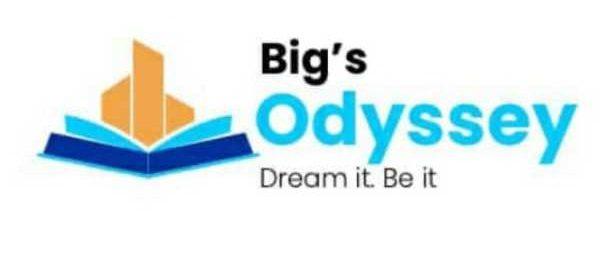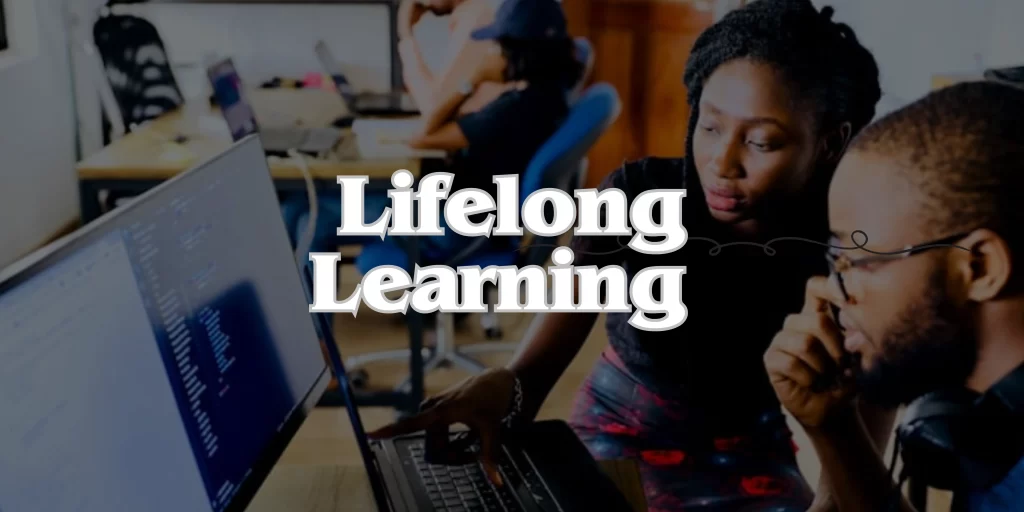With industries reshaped by technology, market demands constantly shifting, and knowledge becoming outdated faster than ever, it’s not enough to rely solely on past education achievements and industry experience. Lifelong learning has become essential and is considered to be the superpower in today’s workforce. But what makes it a powerful tool, and how can it advance your career to new heights?
In this blog, we will demystify the reasons lifelong learning is a career game-changer and practical strategies to harness this superpower effectively.
• Staying Ahead of Industry Changes
According to the World Economic Forum, over 50% of all employees will need reskilling by 2025 to keep up with changing demands and technological advances in the workforce Skill Diversification. Lifelong learners are better prepared for industry shifts because they are familiar with the latest advancements and willing to update their skills to meet new challenges. One of the most compelling reasons lifelong learning is invaluable is its impact on adaptability. As new technology and trends reshape industries, the only way to remain relevant is by learning continuously. Let’s consider fields like artificial intelligence and data analytics, which didn’t exist as they do today even a decade ago.
• Access to Multiple Skill Set
Studies have shown that “T-shaped professionals” who possess deep expertise in one area along with broad skills across others, are in higher demand, as they bring versatility and innovative thinking to organizations. This validates lifelong learning to be crucial career growth due to its ability to diversify skill sets. Employers increasingly value employees with cross-functional skills; such as a project manager with technical knowledge or a marketer skilled in data analytics. Learning a diverse array of skills doesn’t just make you more competitive in your current role; it also opens up career paths and opportunities that might not have been available otherwise.
• The Resultant Confidence
As you acquire new skills and achieve milestones, you boost self-esteem and a sense of personal achievement. This confidence spills over into your work life, making you more willing to take on new challenges, lead projects, and even pursue leadership roles. Harvard Business Review notes that people who engage in regular learning activities report higher levels of career satisfaction, which directly correlates with increased confidence and job performance. A confident, knowledgeable professional is often more proactive, better equipped to solve problems, and more adaptable to change.
• Creativity and Innovation
The process of lifelong learning naturally fosters creativity and innovation. A study by LinkedIn Learning revealed that professionals who engage in continuous learning are 30% more likely to report they are engaged and satisfied with their jobs due to the opportunity to apply creative solutions in their work. Exposure to diverse ideas, disciplines, and problem-solving techniques gives lifelong learners unique perspectives and encourages them to think outside the box. In an era where organizations prioritize innovation as a growth driver, creative employees are more likely to contribute groundbreaking ideas and solutions. Lifelong learners are uniquely positioned to bring fresh insights to the table, often offering innovative approaches to challenges.
Strategies to Harness Lifelong Learning
Having established the importance of longlife learning; it is crucial to guide you through achievable ways to harness the benefits of longlife learning in your career:
• Set Clear Learning Goals
Identify areas where you want to grow, whether for your current role or future aspirations. Setting concrete, achievable goals helps you track your progress and stay motivated. For instance, a project manager interested in data analytics might set a goal to complete a course on SQL or data visualization.
• Utilize Online Learning Platforms
With platforms like Coursera, LinkedIn Learning, and edX, there’s virtually no limit to what you can learn. Choose courses that align with your goals, and prioritize platforms that offer certification or other credentials you can showcase in your professional profile.
• Attend Workshops and Conferences
Industry events, conferences, and workshops provide a unique chance to learn from experts and network with peers. They’re also ideal for staying current on trends. Events like the annual SXSW conference offer insights into innovations across multiple industries, making them invaluable for lifelong learners.
• Read Broadly and Regularly
Books, industry journals, and even podcasts are excellent sources of new information. This not only keeps you informed but exposes you to different perspectives. Many top executives, such as Bill Gates and Warren Buffett, attribute part of their success to regular, dedicated reading habits.
• Find Mentorship Opportunities
There are powerful resources for guidance, perspective, and career advice. A mentor who has navigated your industry’s ups and downs can provide insights into the skills and strategies you need to succeed and stay relevant. They can also help you define a strategic learning plan.
It is not just a buzzword; it’s an essential strategy for long-term career success. In a world where industries, technologies, and knowledge are in constant flux, embracing this continuous learning mindset is the ultimate career advantage. Each new skill or insight you gain enhances your adaptability, resilience, and innovation, equipping you to tackle challenges and seize opportunities.
Lifelong learning is a journey, not a destination, but it’s one that pays continuous dividends in career growth and personal satisfaction. Embrace it, and you’ll not only future-proof your career but also enrich your life in countless ways.
References Link
• https://www.weforum.org/reports/the-future-of-jobs-report-2020 (NO 1: staying ahead of industry changes)
• https://www.linkedin.com/learning/workplacelearningreport (NO 4: Creativity and Innovation)
• https://hbr.org/ (NO 3: Resultant Confidence)

